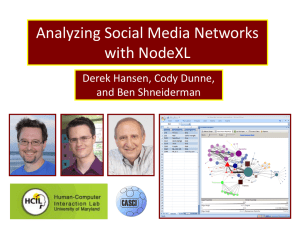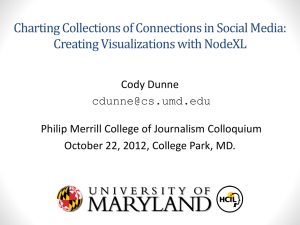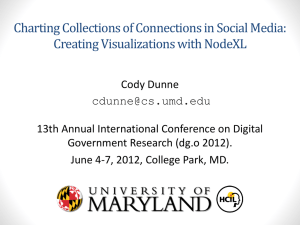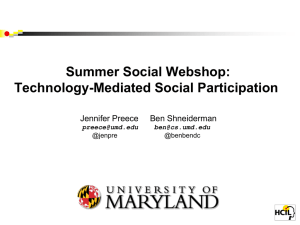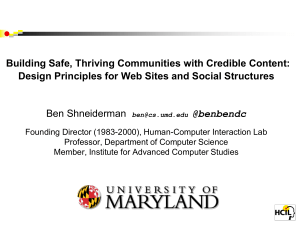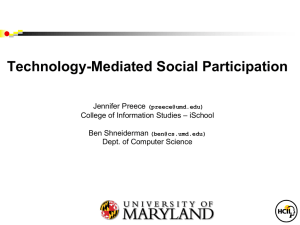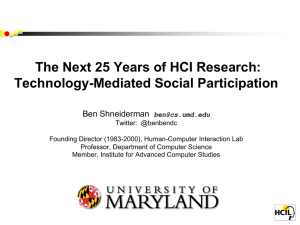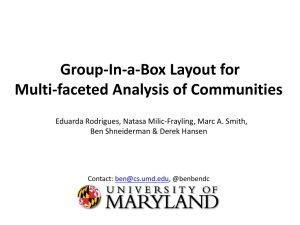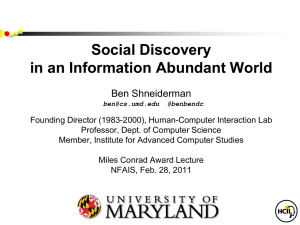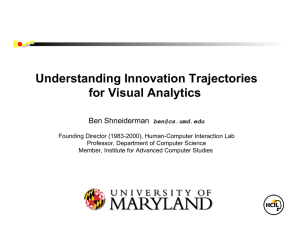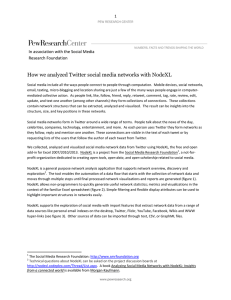(slides 9MB)
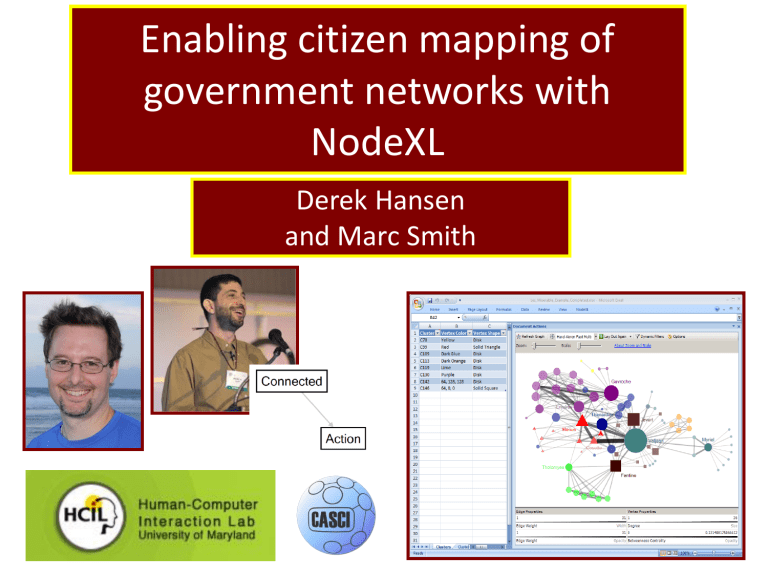
Enabling citizen mapping of government networks with
NodeXL
Derek Hansen and Marc Smith
Patterns are left behind
Research Goal
Develop powerful tools, processes, and methods that dramatically lower the barriers for community managers and researchers to make sense of social media interactions.
Apply them to the government domain and national priorities.
Online Community Analysis
Social Network Analysis
A systematic method for understanding relationships between entities.
Vertex-Specific Metrics
• Betweenness Centrality
• Degree Centrality
• Eigenvector Centrality
• Closeness Centrality
Network-Specific Metrics
• Components
• Density
Introduction to NodeXL
NodeXL: Network Overview,
Discovery and Exploration for Excel
Leverage spreadsheet for storage of edge and vertex data http://www.codeplex.com/nodexl
Import from multiple social media network sources
Key network locations and structures:
Hub v. Spoke
Core v. Bridge
Clusters
Making Government Decisions
More Transparent
Monitoring the Masses
Teaparty
“goldman”
“global warming”
“climate change”
“smithsonian”
NSF
NodeXL map of clusters of YouTube videos discussing healthcare reform linked by shared comments. With two exceptions (the yellow cluster reflecting opponents to the
Administration health care plan, and the red cluster reflecting videos supporting the plan), most clusters do not portray contextual ties between the videos.
Improving Organizational
Communication
Supporting Community Analysts
Conclusion
NodeXL allows non-programmers to analyze relational data from social media. There are many applications to government including:
-Making Government Applications more
Transparent
-Monitoring the Masses
-Improving Organizational Communication
- Supporting Community Analysts
http://nodexl.codeplex.com
Forthcoming,
Sept 2010
Enabling citizen mapping of government networks with
NodeXL
Derek Hansen and Marc Smith
